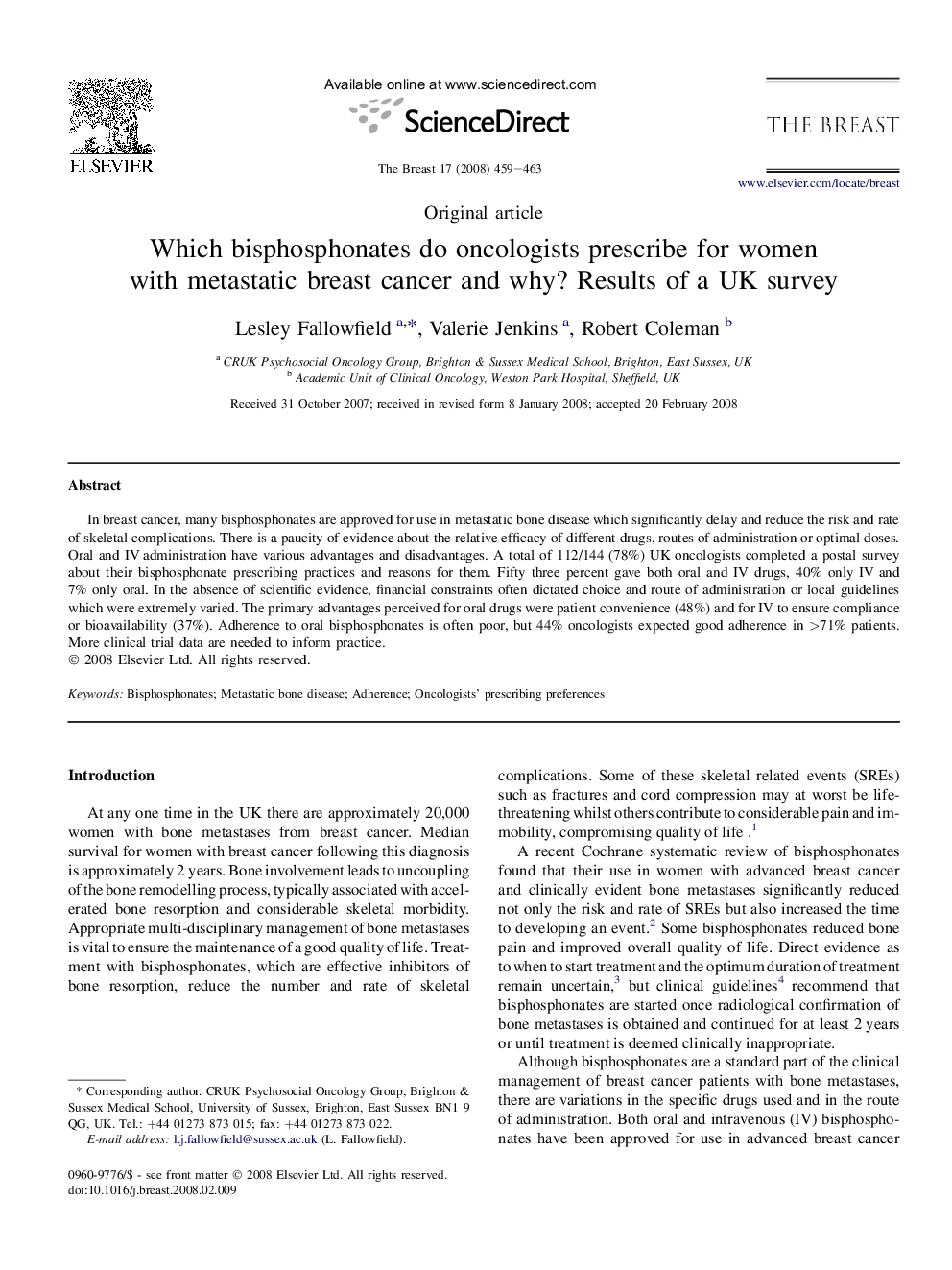| Article ID | Journal | Published Year | Pages | File Type |
|---|---|---|---|---|
| 3909740 | The Breast | 2008 | 5 Pages |
In breast cancer, many bisphosphonates are approved for use in metastatic bone disease which significantly delay and reduce the risk and rate of skeletal complications. There is a paucity of evidence about the relative efficacy of different drugs, routes of administration or optimal doses. Oral and IV administration have various advantages and disadvantages. A total of 112/144 (78%) UK oncologists completed a postal survey about their bisphosphonate prescribing practices and reasons for them. Fifty three percent gave both oral and IV drugs, 40% only IV and 7% only oral. In the absence of scientific evidence, financial constraints often dictated choice and route of administration or local guidelines which were extremely varied. The primary advantages perceived for oral drugs were patient convenience (48%) and for IV to ensure compliance or bioavailability (37%). Adherence to oral bisphosphonates is often poor, but 44% oncologists expected good adherence in >71% patients. More clinical trial data are needed to inform practice.
